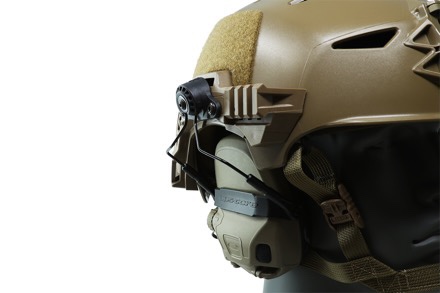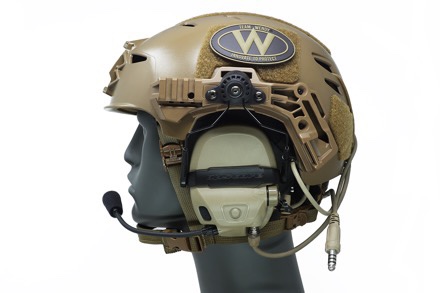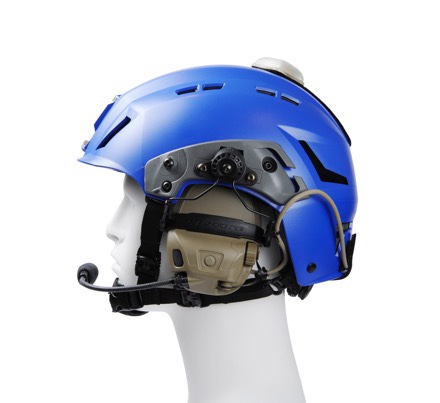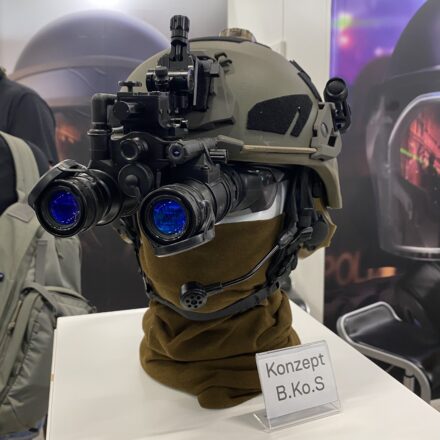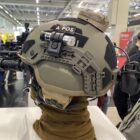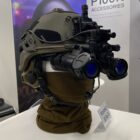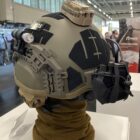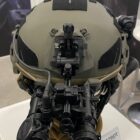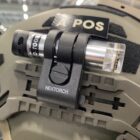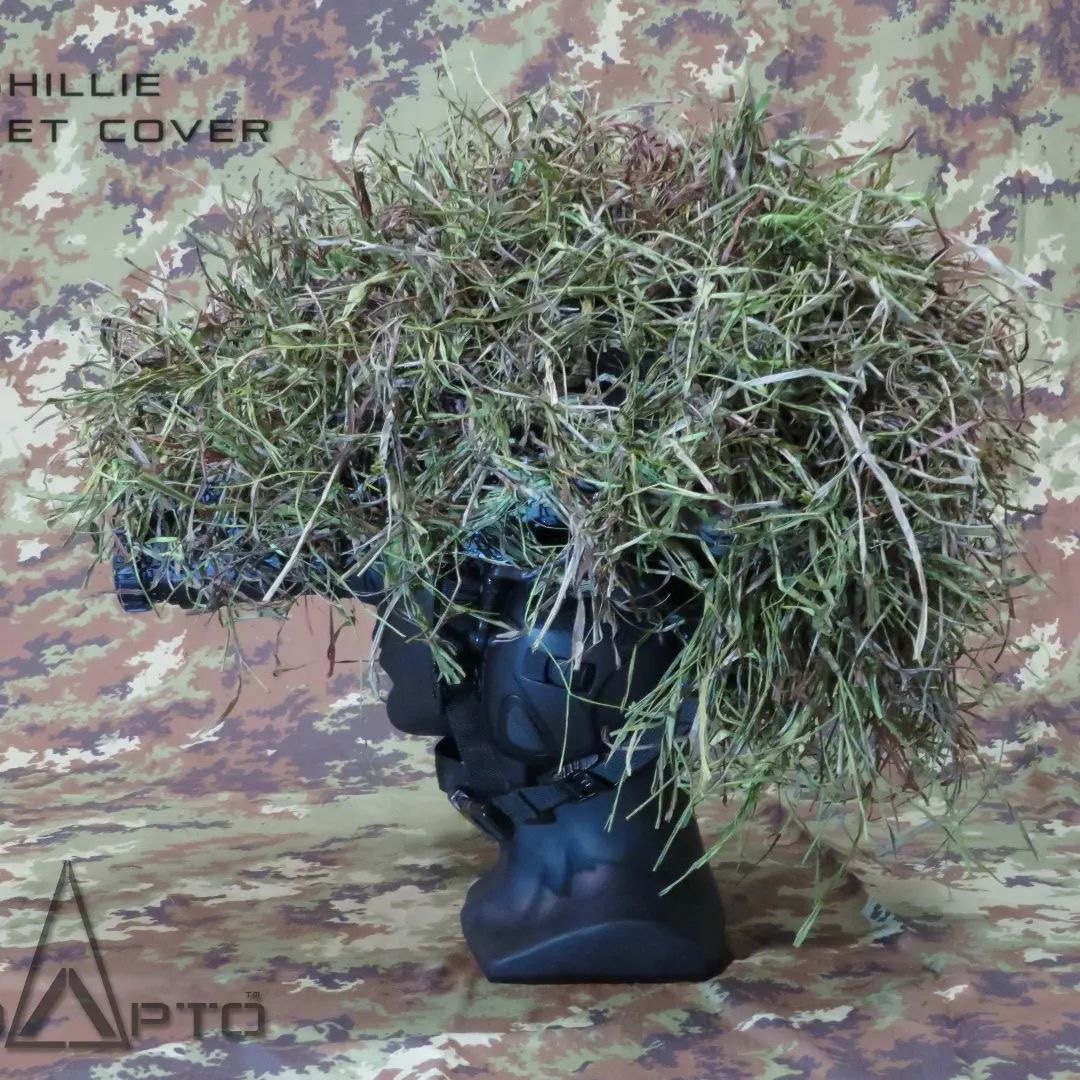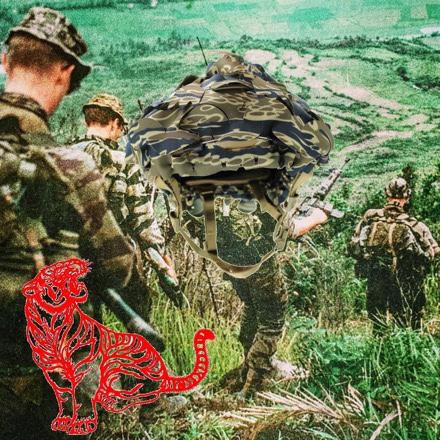A modern combat helmet with a high level of user comfort and ballistic protection, that provides scalable levels of performance and modularity – this is the approach of the new B.Ko.S. concept (Ballistisches Kopfschutz System/ ballistic head protection system). An innovative rail design with open system architecture allows the integration of a multitude of devices, some even not yet fielded to enable a future-proof upgrading and capability expansion potential of the helmet. The design of the inner lining and retention system also requires a new approach. Including a wide range of sizes, coverage of a variety of head shapes and the use of a combined hearing protection/ communication solution. This is achieved without compromising soldier health and safety requirements while communication capabilities are guaranteed for a long time without interference.
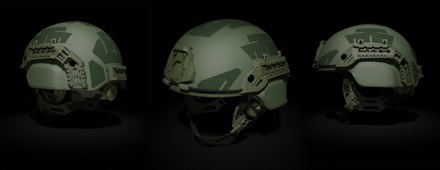
Milad Youkhanna, Head of the Military and Law Enforcement Business Unit, describes the positioning of the B.Ko.S. concept as follows: “For decades, SCHUBERTH has been the reliable partner of the German Armed Forces for head protection solutions. The Swiss Armed Forces also rely on a ballistic helmet from our company to this day. In addition to a high-performance product, an efficient lifecycle management with extensive maintenance capacities are part of the sustainable offer of our company. The B.Ko.S. concept consistently pursues this philosophy and sets standards in terms of modularity, comfort and integration capability – without compromising protection.”
The B.Ko.S rail system with integrated SCHUBERTH universal clips is unique in the industry. It can be easily adapted to a large number of slots provided in all three rails and in the night vision shroud. Allowing the cable routing to be individually adapted in order to reliably supply power to systems to be procured in the future. It also significantly increases the options for helmet bungees or artificial camouflage elements. In the future, connections required by the user can thus be realized quickly and cost-effectively via the universal clip as part of the open system architecture. In addition to the side rails, the B.Ko.S concept has an additional rear rail. This can be utilized to accommodate battery packs to increase powersupply security, while at the same time ensuring an optimal balance of the helmet on the head.
The B.Ko.S. concept focuses on comfort as a significant contribution to broad user acceptance and satisfaction and the directly resulting protection. Finally, an above-average share of common parts across all sizes as well as optimized maintainability ensures low life cycle costs and reduced logistical effort.
According to CEO Dr. Christoph Klotzbach, helmets are always being reinvented at SCHUBERTH: “Innovation and technology as well as user feedback define our focus. This is appreciated just as much by the reigning Formula 1 world champion as by our motorbike customers. But know-how from the police, firefighting and work safety sectors also goes directly into each new helmet generation via valuable synergy effects. We have followed this holistic approach with the B.Ko.S. concept. As a result, we are very proud to present another high-tech product in the year of our centenary, which sets diverse impulses and significantly sets us apart from the market.
At the Enforcetac 2022 trade fair in Nuremberg (Stand 12 279), SCHUBERTH will be presenting the B.Ko.S. ballistic head protection system concept to the trade public for the first time from 1.3.2022 to 2.3.2022.
